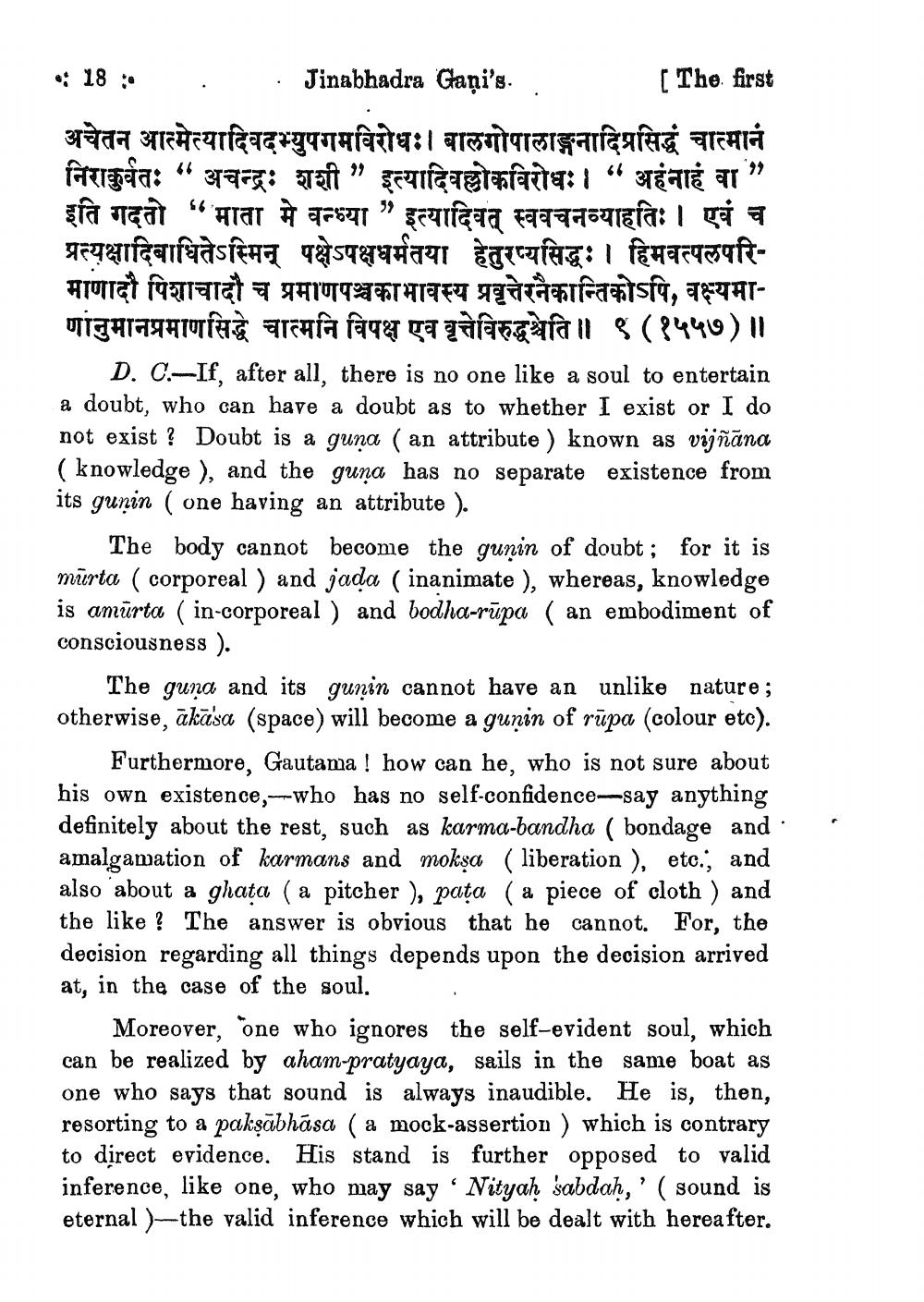________________
•: 18 : . • Jinabhadra Gaņi's. [The first
अचेतन आत्मेत्यादिवदभ्युपगमविरोधः। बालगोपालाङ्गनादिप्रसिद्धं चात्मानं fatursda: “31975: gait” STTIGTEN laita: 1 "reare ar” इति गदतो “माता मे वन्ध्या " इत्यादिवत् स्ववचनव्याहतिः। एवं च प्रत्यक्षादिबाधितेऽस्मिन् पक्षेऽपक्षधर्मतया हेतुरप्यसिद्धः। हिमवत्पलपरिमाणादौ पिशाचादौ च प्रमाणपञ्चकाभावस्य प्रवृत्तेरनैकान्तिकोऽपि, वक्ष्यमाणांनुमानप्रमाणसिद्धे चात्मनि विपक्ष एव वृत्तेविरुद्धश्चेति ॥ ९ (१५५७)॥
D. C.-If, after all, there is no one like a soul to entertain a doubt, who can have a doubt as to whether I exist or I do not exist ? Doubt is a guna ( an attribute ) known as vijñāna ( knowledge ), and the guna has no separate existence from its gunin ( one having an attribute ).
The body cannot become the gunin of doubt; for it is mūrta ( corporeal ) and jada ( inanimate ), whereas, knowledge is amūrta ( in-corporeal ) and bodha-rūpa ( an embodiment of consciousness ).
The guna and its gunin cannot have an unlike nature; otherwise, ākasa (space) will become a gunin of rūpa (colour etc).
Furthermore, Gautama ! how can he, who is not sure about his own existence,--who has no self-confidencesay anything definitely about the rest, such as karma-bandha ( bondage and amalgamation of karmans and moksa ( liberation ), etc.; and also about a ghata ( a pitcher ), pata ( a piece of cloth ) and the like? The answer is obvious that he cannot. For, the decision regarding all things depends upon the decision arrived at, in the case of the soul.
Moreover, one who ignores the self-evident soul, which can be realized by aham-pratyaya, sails in the same boat as one who says that sound is always inaudible. He is, then, resorting to a pakşābhāsa ( a mock-assertion ) which is contrary to direct evidence. His stand is further opposed to valid inference, like one, who may say ' Nityah sabdah,' ( sound is eternal )--the valid inference which will be dealt with hereafter.




